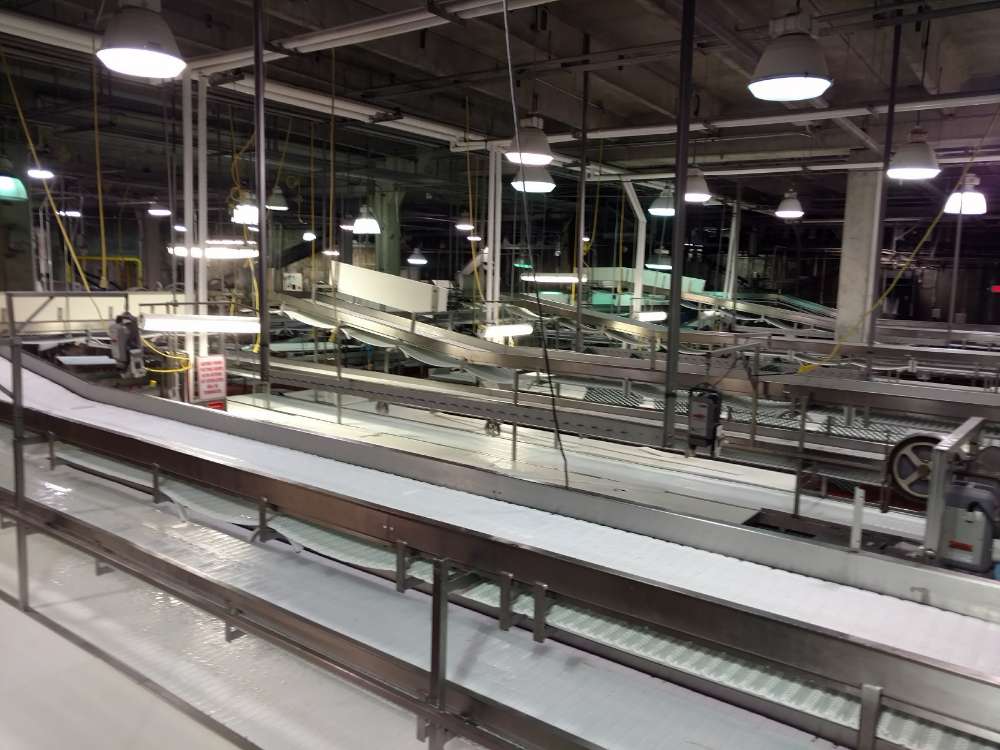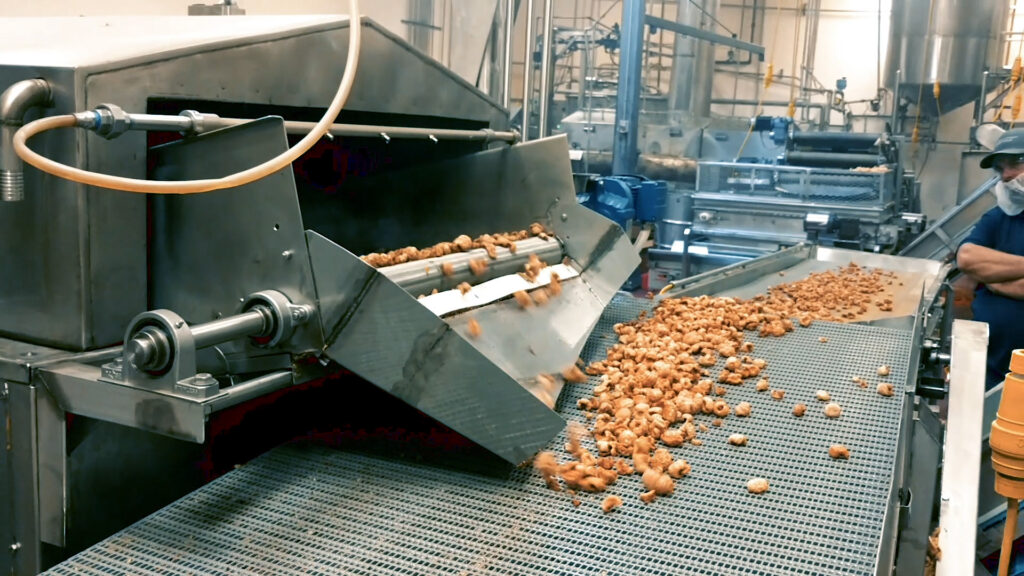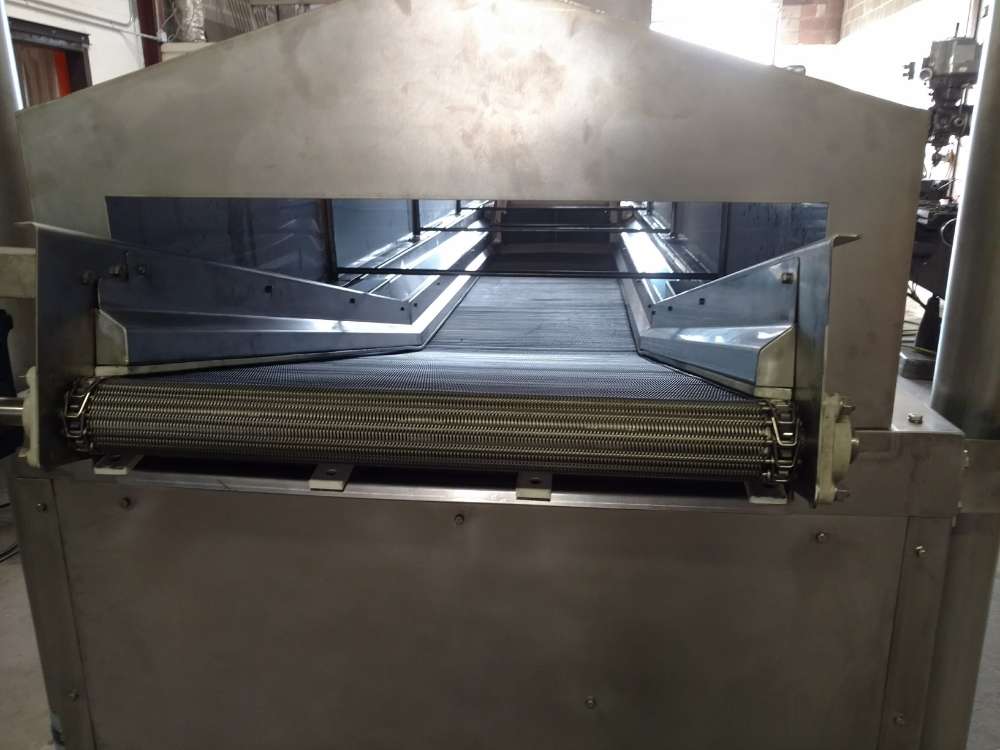
Industrial conveyor systems are truly the workhorses of the modern production environment. These ingenious systems play a critical role in various sectors, moving goods and materials smoothly and efficiently along production lines. Of particular note is the impact they have had on the food, pharma, and cosmetic industries, where precision, speed, and cleanliness are of paramount importance.
Industrial conveyor systems offer a range of conveyor options, each designed to meet specific industrial needs. From belt conveyors designed for heavy or bulk items to roller conveyors ideal for lighter loads, these systems cater to a diverse set of requirements.
At PEC, we understand the vital role of industrial conveyor systems in diverse industries. Our millwright team is well equipped to mechanically install different types of conveyor systems, including belt conveyors designed for heavy or bulk items and roller conveyors ideal for lighter loads. Our expertise ensures a robust and efficient system tailored to your specific industrial needs.
Understanding industrial conveyor belt systems requires diving into the anatomy of these machines. While different systems may vary in design and function based on the specific needs of an industry, most industrial conveyor belt systems share some standard features.
Firstly, the heart of any conveyor system is the belt itself. This can range from a simple flat surface in belt conveyors to more complex designs like a series of interconnected buckets in a bucket conveyor or a chain of disks in a disc conveyor.
Secondly, pulleys or sprockets are essential components of conveyor belt systems. They are designed to drive and guide the belt. Conveyor systems also feature a motor, which powers the system, enabling it to handle heavy loads and operate at desired speeds.
The framework of the system, often made of durable materials like stainless steel, supports the belt and houses other components like the motor and pulleys. Finally, controls and sensors are critical to ensure the smooth running of the system and allow for automation and safety measures to be put in place.
The conveyor technologies of today have come a long way from their primitive ancestors. The first conveyors were manually operated and used for moving heavy items over short distances. With the advent of industrialization and the need for more efficient material handling methods, conveyor systems began to evolve.
The 20th century marked a significant turning point for conveyor technologies. The introduction of electric motors and the development of more sophisticated control systems allowed conveyors to handle more complex tasks, operate at higher speeds, and accommodate a wider range of materials. These advancements transformed the industrial conveyor into an indispensable tool for modern manufacturing.
Today, the evolution of conveyor technologies continues to shape the industry. From traditional belt conveyors to more advanced systems like chain conveyors and series conveyors, these systems have become more efficient, flexible, and reliable.
With continued advancements in automation, AI, and robotics, the future of conveyor technologies promises even greater efficiency and adaptability, ensuring they remain integral to industrial operations.

One of the most substantial benefits that industrial conveyor systems bring to the table is their ability to significantly increase production line efficiency. This is primarily achieved through high speeds and the capacity to handle heavy loads.
In a production line, time is of the essence. Efficient movement of products from one point to another is crucial to keep the operations running smoothly and timely. Industrial conveyor systems, with their high-speed capabilities, allow for quick transportation of goods, reducing the amount of time idle and consequently increasing the productivity of the line.
Moreover, these systems are built to be heavy-duty, capable of moving heavy loads with ease. Whether transporting bulk materials in a mining operation or moving large products in a manufacturing plant, conveyor systems ensure that the heavy lifting is done swiftly and safely, without compromising the pace of the production line.
One of the defining characteristics of an industrial conveyor system is the choice of material used in its construction. Among various options, stainless steel stands out as a popular choice for several reasons.
Primarily, stainless steel is known for its durability and strength. These qualities make it ideal for environments where the conveyor system needs to withstand heavy loads and constant use. Furthermore, stainless steel is highly resistant to corrosion, making it suitable for industries that require sanitary conditions, such as food, pharma, and cosmetics.
The advent of conveyor solutions has revolutionized material handling in clean rooms, especially in sensitive industries such as pharmaceuticals, electronics, and food processing.
In these industries, maintaining a contamination-free environment is essential. Conveyor systems designed for clean rooms play a pivotal role in transporting materials while maintaining the stringent cleanliness standards required. These systems, often made from stainless steel for its non-porous and easy-to-clean properties, are designed to minimize particle release into the air, reducing the risk of contamination.
PEC’s expertise in installing and managing conveyor systems designed for clean rooms ensures the transportation of materials while maintaining stringent cleanliness standards. By automating the material handling process, these systems reduce human intervention, minimizing the risk of contamination from human contact.
At PEC, we understand that selecting the right industrial conveyor system can be a daunting task given the wide range of options available. We work closely with you to understand your specific needs and the demands of your industry, guiding you toward the right solution.
Consider the nature of the materials or products you need to transport. Are they heavy or light? Are they bulky or compact? Do they require special conditions such as temperature control or sterile environments?
Different conveyor systems are designed to handle different types of materials, so defining this aspect will help narrow down your options.
Another important consideration is the scale of your operation. If you’re dealing with large-scale projects or full plant relocations, you’ll need a robust, high-capacity system that can handle the demands of such tasks without compromising efficiency or safety.

Industrial conveyor systems have fundamentally transformed how materials and products move within diverse industries, and PEC has been a vital part of this revolution. Our extensive experience in installing and automating these systems has not only enhanced production line efficiency through high speeds and heavy-load handling, but we also ensure sanitary conditions in sensitive environments such as clean rooms.
Our comprehensive services don’t stop at installation. PEC’s team of skilled millwrights and electrical technicians ensures your conveyor systems are not only installed but also efficiently wired for power. Then, our controls group steps in to automate your system, leading to heightened productivity and reduced chances of operational errors.
We encourage you to think about how PEC’s services can revolutionize your industry’s conveyor systems. By adopting or upgrading to a conveyor system installed, wired, and automated by PEC, you’ll enhance efficiency and increase productivity, driving success in your operations. When you choose PEC, you’re not just investing in a machine; you’re investing in a solution that accelerates your business.